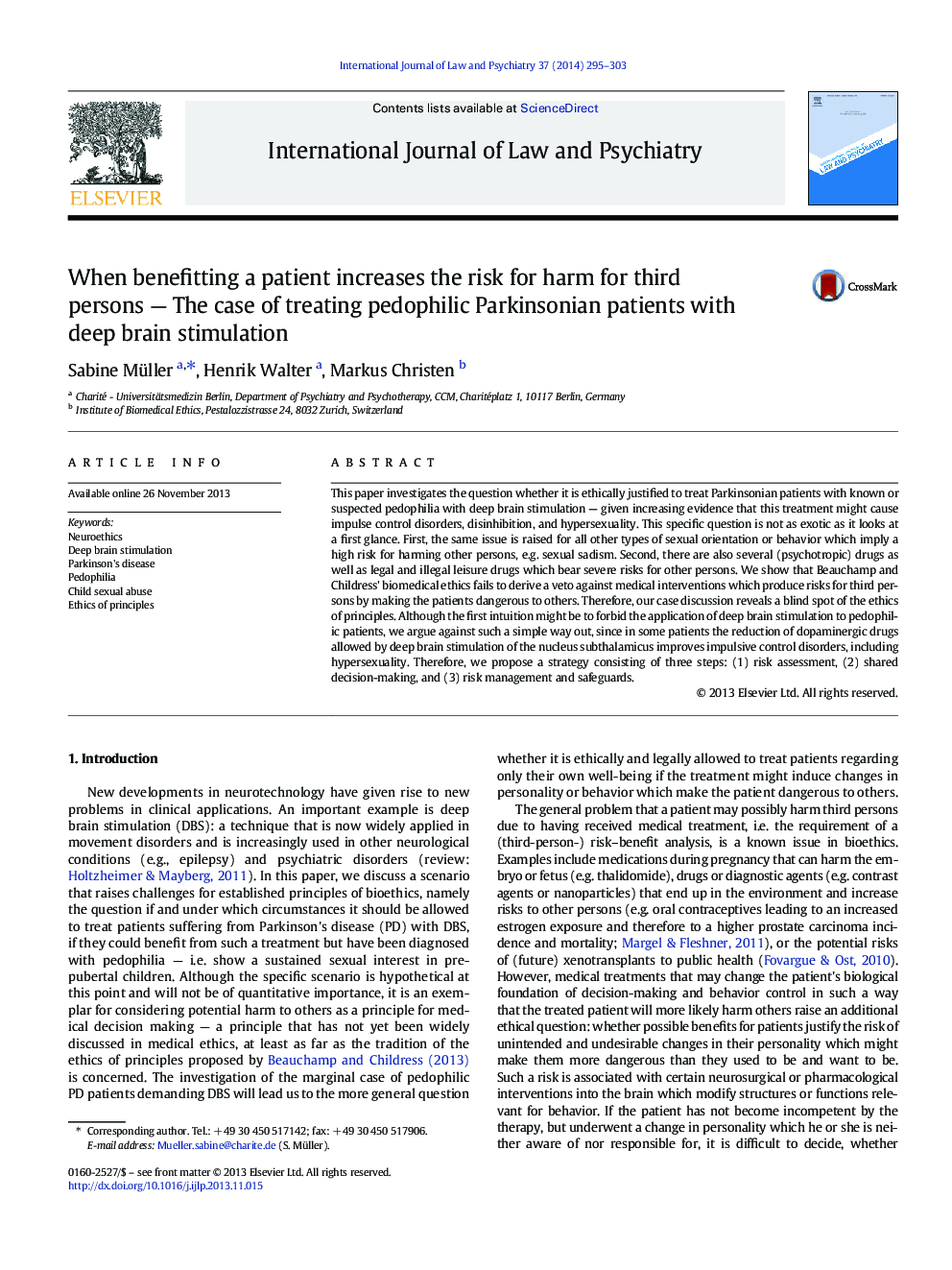| Article ID | Journal | Published Year | Pages | File Type |
|---|---|---|---|---|
| 6554694 | International Journal of Law and Psychiatry | 2014 | 9 Pages |
Abstract
This paper investigates the question whether it is ethically justified to treat Parkinsonian patients with known or suspected pedophilia with deep brain stimulation - given increasing evidence that this treatment might cause impulse control disorders, disinhibition, and hypersexuality. This specific question is not as exotic as it looks at a first glance. First, the same issue is raised for all other types of sexual orientation or behavior which imply a high risk for harming other persons, e.g. sexual sadism. Second, there are also several (psychotropic) drugs as well as legal and illegal leisure drugs which bear severe risks for other persons. We show that Beauchamp and Childress' biomedical ethics fails to derive a veto against medical interventions which produce risks for third persons by making the patients dangerous to others. Therefore, our case discussion reveals a blind spot of the ethics of principles. Although the first intuition might be to forbid the application of deep brain stimulation to pedophilic patients, we argue against such a simple way out, since in some patients the reduction of dopaminergic drugs allowed by deep brain stimulation of the nucleus subthalamicus improves impulsive control disorders, including hypersexuality. Therefore, we propose a strategy consisting of three steps: (1) risk assessment, (2) shared decision-making, and (3) risk management and safeguards.
Related Topics
Health Sciences
Medicine and Dentistry
Forensic Medicine
Authors
Sabine Müller, Henrik Walter, Markus Christen,
